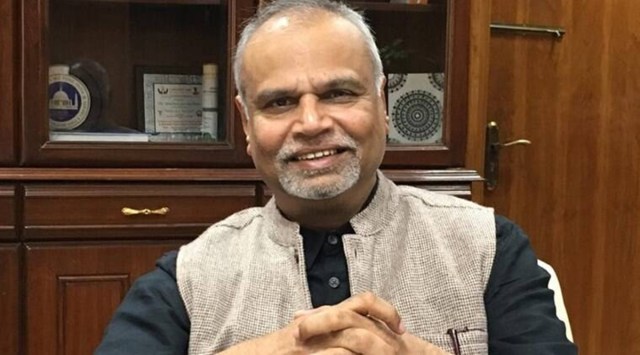NAAC Resignation Row | Dubious experts, compromised IT: Review panel red-flags how NAAC grades colleges, varsities
Lack of action on the report, which was submitted to the University Grants Commission (UGC) in September last year, was flagged by NAAC executive committee chairperson Bhushan Patwardhan in the days leading to his resignation from the post on Sunday.
 NAAC chairman Bhushan Patwardhan
NAAC chairman Bhushan Patwardhan The “possibility” of a “compromised” IT system; “super admins” with full access to the internal system; “arbitrary” allocation of experts raising questions of “conflict of interest” with 70 per cent from the available pool unutilised.
These are some of the findings listed in a report submitted by a panel that reviewed the functioning of the National Assessment and Accreditation Council (NAAC), which grades colleges and universities, The Indian Express has learnt.
Lack of action on the report, which was submitted to the University Grants Commission (UGC) in September last year, was flagged by NAAC executive committee chairperson Bhushan Patwardhan in the days leading to his resignation from the post on Sunday.
NAAC is an autonomous body under the UGC. The review panel, headed by J P Singh Joreel, was set up by Patwardhan after he took charge at NAAC in February last year. Joreel is the director of Information and Library Network (INFLIBNET), which is involved in modernising university libraries.
In his resignation letter submitted to UGC chairman M Jagadesh Kumar, Patwardhan wrote that he was attempting to “safeguard the sanctity” of the NAAC post. In an earlier letter sent to Kumar, on February 26, Patwardhan suggested that “vested interests” were “manipulating…processes” in the accreditation system.
According to the review panel’s report, submitted on September 20, 2022, the process of selection of experts who comprise peer teams that are sent to assess applications for accreditation is “neither random nor sequential”.
It points out that nearly 70 per cent of experts from the pool of assessors do not appear to have received any opportunity to conduct site visits while some others have had multiple such visits.
Patwardhan and Joreel did not respond to requests for comment from The Indian Express.
According to an NAAC official, there are 4,000 experts, who are mostly academics attached with higher educational institutions, serving as members of peer teams in NAAC. Sources involved in the process said only about 30 per cent of these experts are involved in the accreditation process, which was a “clear indicator” of the “extent of rot” due to “allotment through manual interventions without valid reasons”.
Sources said the other “glaring” gaps highlighted in the report include the presence of multiple “super admins” who have full access to the NAAC’s internal system and the power to allot experts; and, “non-maintenance of logs which may have adverse fall outs”.
Last month, the Government informed the Lok Sabha that of the 1,113 universities and 43,796 colleges in the All India Survey on Higher Education Report 2020-21, NAAC accredited 418 universities and 9,062 colleges as on January 31, 2023.
Under NAAC’s accreditation process, the first step involves an applicant institution submitting a self-study report (SSR) based on quantitative and qualitative metrics. The data is subjected to validation by expert teams of NAAC, with quality reviewed during site visits by peer teams.
In his letter sent to UGC chief Kumar last month, Patwardhan wrote: “Based on my experience, various complaints from the stakeholders, and review committee reports, I had expressed my apprehensions earlier about the possibility of vested interests, malpractices, and nexus among the persons concerned, offering thereby a green corridor by presumably manipulating…processes leading to the awarding of questionable grades to some HEIs. Mainly due to this, I had also suggested the need for an independent inquiry by appropriate high-level national agencies.”
- 01
- 02
- 03
- 04
- 05































